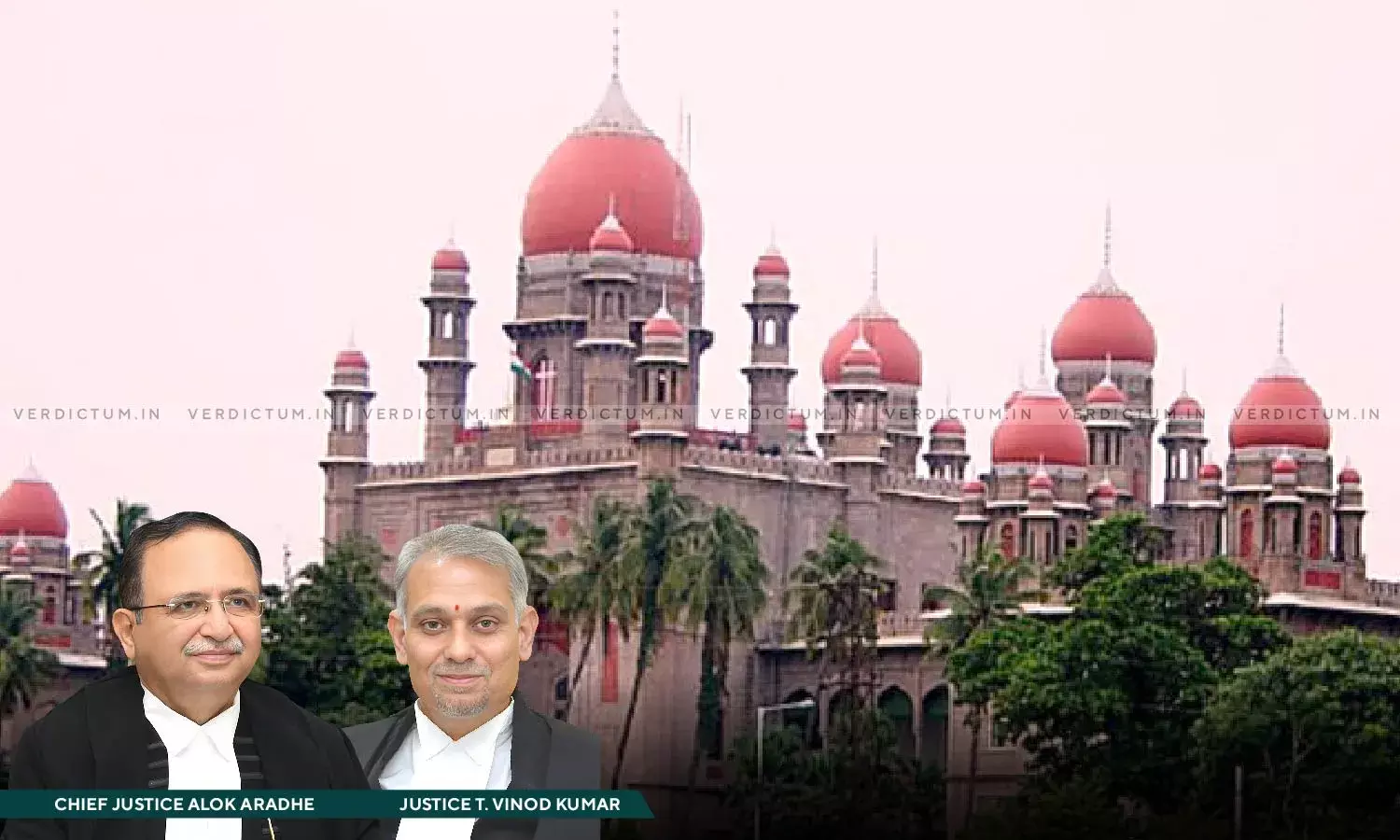Arbitrary, Violative Of Article 14- Telangana HC On Medical Admissions Rule That Candidate Must Study In Local Area For 4 Consecutive Years

A Telangana High Court Bench of Chief Justice Alok Aradhe and Justice T Vinod Kumar has observed that Rule 3(III)(B) of the Telangana Medical and Dental College Admission (Admission into MBBS and BDS Courses) Rules, 2017 is unconstitutional and violative of Article 14 of the Constitution.
Notably, Rule 3(III)(B)(a) of 2017 Rules mandates a student to study in an educational institution in the local area for four consecutive academic years ending with the academic year in which he/she appeared or as the case may be first appeared for the relevant qualifying examination.
Senior Counsel K Rama Krishna Reddy and Senior Counsel Maur Reddy, among others, appeared for the petitioners. Government Pleader N Praveen Kumar and Counsel A Prabhakar Rao appeared for the respondents.
In this case, the Court was hearing a number of writs which had been filed by permanent residents of Andhra Pradesh and Telangana, who had been held as "non-local" in NEET 2023.
It was contended by the aspirants that they were being denied local candidate reservation despite being residents of the state. This denial was because they had lived or studied outside the state due to reasons like the COVID-19 pandemic or because their parents served in All India Services and were posted in different states.
The students argued that they should be considered local candidates and that the rules denying them reservation were arbitrary. They mentioned that various High Courts, including the Telangana High Court, had interpreted similar rules in their favor, considering the place where children accompanied their parents in All India Service postings as their normal place of residence.
They also contended that these rules were not based on any Presidential Order under Article 371(D) and were instead established under the Telangana Educational Institutions Act of 1983, which didn't define the term 'local area'.
The University's standing counsel argued that these rules derived their power from the 1974 Presidential Order and should be challenged in the Supreme Court. They believed that the rules and the Presidential Order were similar and cited a Supreme Court case to support this view. Additionally, they stated that these rules required candidates to satisfy local and non-local requirements as per the Presidential Order, which was mandated by the Andhra Pradesh Reorganization Act, 2014, until 2024.
In response, the students' counsel argued that the university's precedents were not applicable in this case. They contended that the rules were framed by the State Legislature, not through a Presidential Order. Furthermore, they claimed that Article 371(D) did not issue an order for Telangana after its bifurcation in 2014, making the 1974 Presidential Order irrelevant to the current situation.
The High Court observed that there appeared to be no justification for denying the benefit of admission to a student who is a permanent resident of State of Telangana who may not have studied or resided in local area for four consecutive academic years ending with academic year in which he/she appeared or as the case may first appeared for the relevant qualifying examination.
In light of the same, it was held that the Rule was arbitrary and violative of Article 14 of the Constitution.
Subsequently, the Court relied on a catena of judgments, including B.R.Enterprises v. State of Uttar Pradesh, to decide whether the impugned Rule should be read down. In that context, it was said that, "The golden rule of interpretation is of respecting the wisdom of legislature on the ground that they are aware of the law and would never have intended for an invalid legislation."
In the same context, it was further said that, "The object of Rule 3(III)(C) of 2017 Rules is to provide reservation for local candidates. In case the rule is struck down then students from all over the country shall be entitled to admission in medical colleges. Therefore, instead of striking down Rule 3(III)(B) of 2017 Rules, it needs to be read down."
In light of the same, the Court read down the Rule and held that it shall not apply to permanent residents of the State of Telangana. In furtherance, it was said that, "by reading down the provision in the manner indicated above shall also be in consonance of object of Article 371D(2)(b)(ii) of the Constitution of India i.e., of making special provision to the people of different parts of State for admission to educational institutions."
Consequently, it was directed that in case petitioners produce Residence Certificate issued by a competent authority of Government of Telangana within a period of one week before the University, the petitioners shall be treated as local candidates.
No orders were passed as to costs.
Cause Title: Prashansa Rathod & Ors. vs The State of Telangana
Click here to read/download the Judgment

